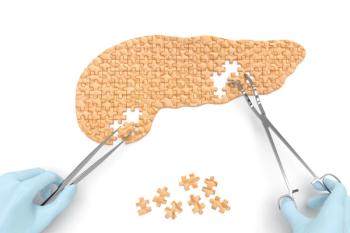
Adherence to Prevention Recommendations Associated With Reduced Risk For All Cancers
The World Cancer Research Fund (WCRF) and American Institute for Cancer Research (AICR) Cancer Prevention Recommendations were updated in 2018 and encourage adopting healthy lifestyle habits.
Better adherence to the World Cancer Research Fund (WCRF) and American Institute for Cancer Research (AICR) Cancer Prevention Recommendations was associated with significantly reduced risk for all cancers, according to new research published in the journal BMC Medicine.1
Modifiable lifestyle factors are known to increase the risk of common cancers, such as colorectal and breast. In an effort to reduce overall cancer risk, the WCRF and AICR released 10 prevention recommendations in 2007. The recommendations, updated in 2018, encourage eating a healthy diet, maintaining a healthy weight, and performing physical activity.
“Several studies have investigated associations between adherence to the WCRF/AICR Cancer Prevention Recommendations and the risk of cancer diagnosis, cancer survival, and other health-related outcomes,” the authors wrote. “However, most of the studies to date have assessed adherence to the earlier, 2007, version of the recommendations…”
A team of investigators from Newcastle University and the University of Glasgow conducted a study to assess associations between WCRF/AICR prevention recommendations adherence and the risk of all cancers combined and of 14 cancers for which there is strong evidence for links with lifestyle factors.
Data was gathered from 94778 participants of the UK Biobank, a prospective cohort study that is investigating how genetic predispositions and environmental factors can contribute to disease development. The biobank study included 5000000 participants from 22 centers across England, Scotland, and Wales between 2006 and 2010.
Associations between total score and cancer risk were analyzed using a Cox proportional hazard model and were adjusted for age, sex, deprivation index, ethnicity, and smoking status.
Investigators found that 7296 participants developed cancer during a median follow-up time of 8 years. The 3 most common types of cancer were prostate, breast, and colorectal. There was a significant inverse association between total adherence score and risk of all cancers combined, which was equivalent to a 7% reduction in risk per 1-point increment in score.
Compared to those with the lowest scores, participants in the middle and highest score levels had an 8% and 16% lower risk of developing all types of cancer, respectively. Additionally, there was a 10% reduction in both breast and colorectal cancer, an 18% lower risk of kidney cancer, a 16% lower risk of esophageal cancer, a 22% lower risk of liver cancer, a 24% lower risk of ovarian cancer, and a 30% lower risk of gallbladder cancer.
Study limitations include that the UK Biobank study cohort is not representative of the general population, that cancer screening was not included as a potential confounder, and that some cancers did not have a large number of cases due to a reduced cohort size.
“Our findings support promoting compliance with the 2018 WCRF/AICR Cancer Prevention Recommendations for cancer prevention in the UK,” the authors concluded. “Further research to better understand which recommendations are driving the associations observed with cancer risk, as well as to explore the weightings allocated to the individual components (currently all seven or eight components are of equal weighting) would be of value.”
Reference
1. Malcomson FC, Parra-Soto S, Ho FK, et al. Adherence to the 2018 World Cancer Research Fund (WCRF)/American Institute for Cancer Research (AICR) Cancer Prevention Recommendations and risk of 14 lifestyle-related cancers in the UK Biobank prospective cohort study. BMC Med 21, 407 (2023). https://doi.org/10.1186/s12916-023-03107-y
Newsletter
Pharmacy practice is always changing. Stay ahead of the curve with the Drug Topics newsletter and get the latest drug information, industry trends, and patient care tips.























